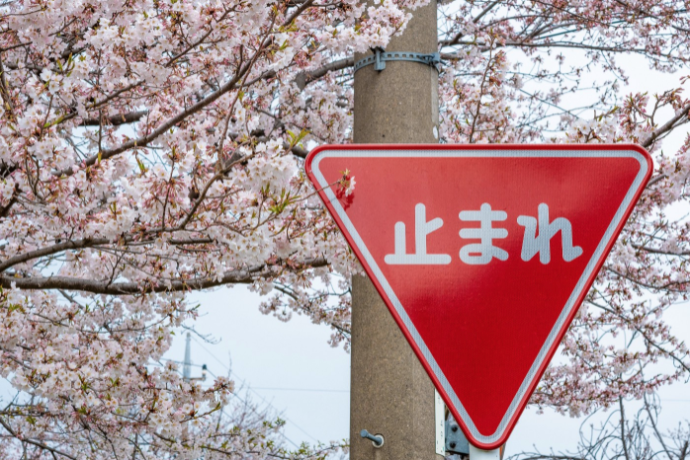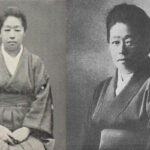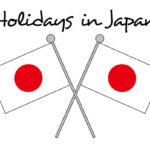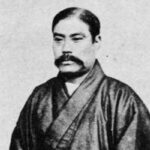Japanese is the most regular, structured language in the world
.

.
Whenever people hear me speaking Japanese, they’re shocked. Isn’t Japanese really difficult? Even Japanese people seem to believe learning Japanese is impossible for non-natives. The truth is it’s so much easier than English.
It’s not like I’m good at learning languages. In high school, I struggled with Spanish classes and quit once I knew how to order a beer and find the bathroom.
Before taking on Japanese as a second language as an adult, I saw the reports of it being difficult. The US State Dept.’s Foreign Service Institute rates Japanese along with Chinese, Korean, and Arabic as only 4 languages in their most difficult category. They claim it takes 4 times longer to master Japanese than Spanish, Norwegian, or Romanian. They’re wrong.
In fact, Japanese is one of the easiest major languages to learn. Here’s why:
.
1. Japanese Has Simple, Structured Grammar
Learning Spanish means memorizing tables of verb conjugations. And it seems like there are more irregular verbs than “regular” ones that following complex rules. In contrast to any European language, Japanese grammar is a breeze.
- Only 2 irregular verbs (suru, kuru). All the rest follow the rules.
- No gender. Is a book male or female? How about a pen? Or a table? What about God? Despite the interesting debates on what makes an inanimate object male or female, it’s just more memorization with rules that have more exceptions than matches. Thank God Japanese don’t require knowing the gender of the noun to conjugate the verb.
- No singular or plural conjugations. He buys a book. They buy a book. Ugg. Hon o kaimasu. Simple.
- No future tense. There are only 2 tenses: past and present. He buys a book. He will buy a book. Hon o kaimasu. Simple.
- Easy conjugations. Once you’ve learned the hiragana table in Lesson 1, you’ve learned verb conjugations. The conjugations for iku 行く(to go) are: i-ka-nai, i-ki-masu, i-ku, i-ke-ru, i-kou, i-tte, i-tta. That’s it: a-i-u-e-o-tte-tta. Verb conjugations done! (Okay, yeah, I’m ignoring the ichi-dan verbs which are even easier.)
.
2. No Impossible Sounds in Japanese
Chinese with its tones is impossible to pick up for someone who didn’t grow up with the language. The brain circuits just aren’t there. Despite simple grammar and only 1 pronunciation per kanji, there is no way for me to hear and speak Chinese no matter how much I study.
The State Dept. ought to have a separate category for “easy but impossible.” Put Vietnamese and Thai into that category, too.
Further, most languages have a set of sounds that are difficult for non-native speakers to pronounce. The Japanese language has comparatively few sounds, nearly all of which correspond to something in English.
Saying “Tokyo” (Tou-kyou) takes a little getting used to (English speakers tend to say To-ki-o) as does the double-consonant tsu, but it’s easy to pick up with a little practice.
In contrast, the wide variety of sounds in English is a disaster for non-native speakers. Can you hear the difference between light/right, ship/sheep, sink/think, very/berry?
.
3. Japanese Vocabulary is Easy to Learn
For most languages, vocabulary means memorize, memorize, memorize 20,000–30,000 words to become fluent. Japanese has a shortcut.
Instead of memorizing random words, learn 1000 kanji. Most Japanese words are a combination of 2 kanji. That makes vocabulary easy.
The word for February: 2 + Month = nigatsu (二月). No need to memorize January, February, March… If you know the numbers and you know the word for moon, you know all the months.
Okay, I cherry-picked an especially easy example, but pretty much every word can be understood from its composite 2 kanji. Here’s a more typical example: the word for “word” is kotoba 言葉, composed of the characters for “to speak” and “leaf.” A speaking leaf = word. How elegant (and poetic) is that?
When unknown words come up in conversation, it’s usually easy to figure out their meaning by imagining the kanji. (It’s even easier when reading.) A story on the news about a “kazan”? Ka is fire, zan/san is mountain. Ah, volcano — run away!!!
.
4. Japanese is Pronounced Just As It’s Written
I feel sorry for English learners. Why is “new” pronounced the same as “gnu” but “sew” is the same as “so”?
There is little rhyme or reason to how to spell and pronounce a word in English. It’s so hard we have spelling contests on national television and the winner is considered a genius. If it wasn’t for the invention of the spell checker, I wouldn’t have graduated college.
In contrast, Japanese is easy. There’s only 1 way to write any word in hiragana, and from the kana it’s clear how to pronounce it.
.
5. When Stuck, English Works
Don’t know how to say something in Japanese? It’s okay to cheat. Put the words into katakana and Japanese grammar and you’ll be understood most of the time.
Don’t know the Japanese word for “writer”? Watashi wa raitaa desu (ライター です.) will work perfectly fine.
For verbs, add suru to anything: ima kara cooking (kukkingu) shimasu.
It’s not elegant, it’s not natural, and you won’t pass the JLPT test. But the point of language is communication, and if you’re understood, that’s all that matters.
.
・・・・・
.
This is not to deny that kanji could drive even the Buddha to despair, or that being so different from English, Japanese can be difficult to get started.
Like most languages, the exceptions tend to concentrate on the most frequently used words like “is / desu”. Common expressions we learn in Lesson 1 like “Doumo arigatou gozaimasu” or “ohayou gozaimasu” don’t fit modern grammar.
But once you get over the initial hurdles, the regular structure of Japanese makes it so much easier to become fluent than a disaster like English.
.
Before you jump up screaming, “KANJI! What about the damn kanji? And keigo — wtf?” wait for next week’s article: 8 Reasons Why Japanese is One of the Most Difficult Languages to Learn.
Like my articles? Want to read more? Subscribe to Medium for $5 per month with this link and half your subscription gets paid to your favorite writer — me! https://dcpalter.medium.com/membership.
..
.
『Learn Japan Deeply with DC!』
Writer: DC Palter
Read DC’s Stories More at Japonica Publication ( medium.com/japonica-publication )
(3/18/2022)
.
.




